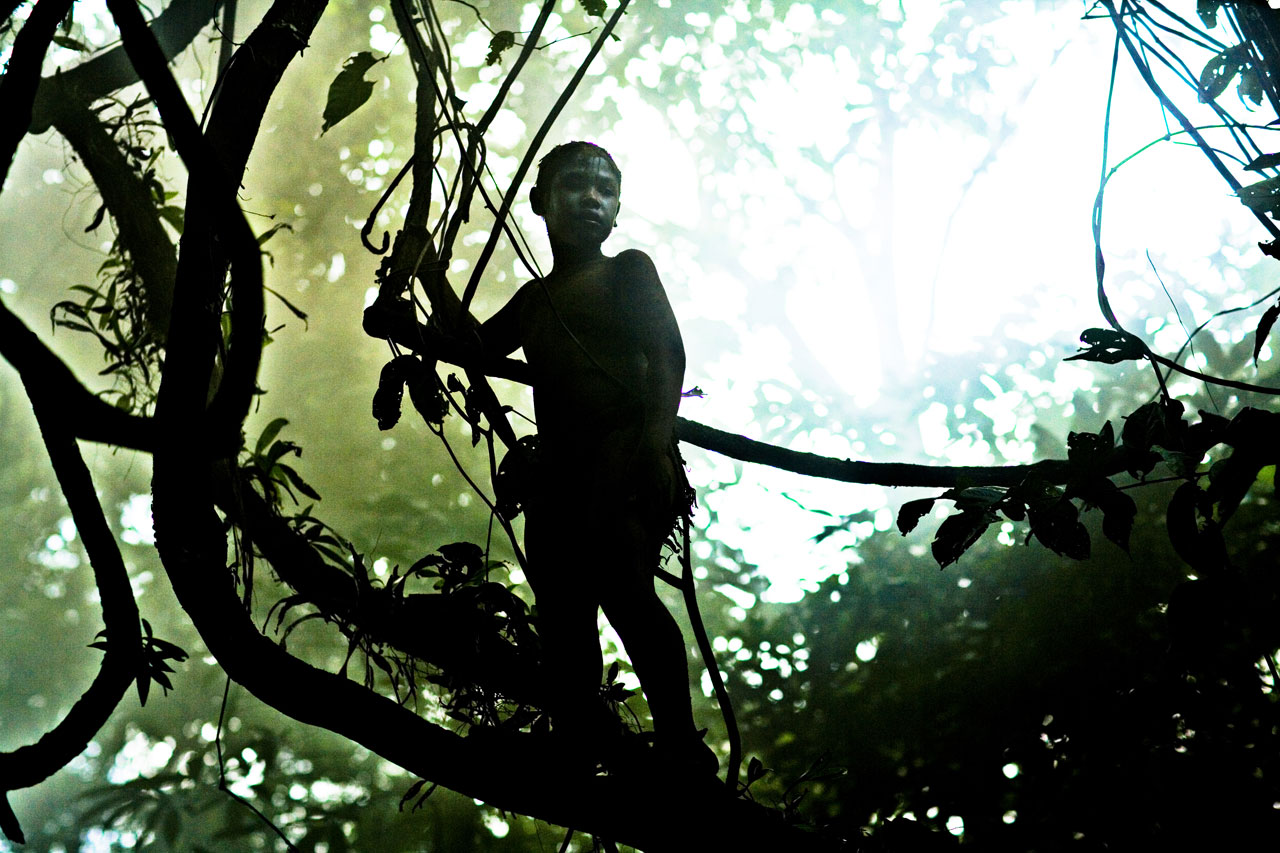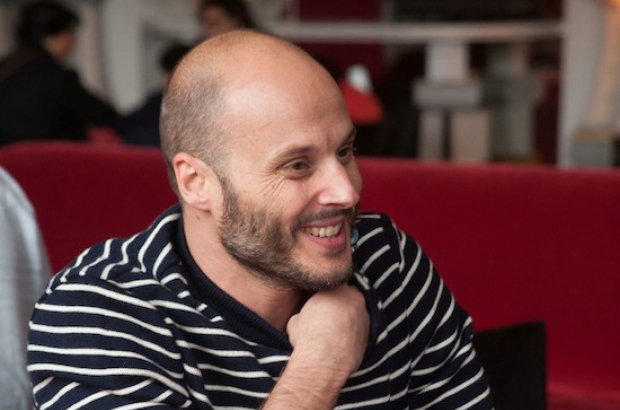- Daily & Weekly newsletters
- Buy & download The Bulletin
- Comment on our articles
Belgian filmmaker Fabrice du Welz: 'Cinema is a kind of alchemy'
Belgian award-winning filmmaker Fabrice Du Welz makes dark, often violent, heavily atmospheric films about deplorable acts that manage surprisingly to reinforce our general feeling of humanity.
His first feature length film, Calvaire (2004) is based on the same news item that inspired Psycho and the Texas Chainsaw Massacre and was selected for the Semaine de la Critique at the Cannes Film Festival, a showcase for promising new directors.
His second film, Vinyan (2008), starring Emmanuelle Béart and Rufus Sewell, shot in Thailand, uses the 2005 Boxing Day tsunami as the starting point of a harrowing and chilling voyage into the heart of darkness.
The next film Alleluia (based on the Lonely Hearts Killers case) brought him back to the Ardennes where Calvaire was shot, both being a part of his Ardennes trilogy.
He spoke to The Bulletin as he was getting organised to shoot the third film in the trilogy, Adoration.
Nature seems to be an antagonistic force in your movies.
I think that it's always a struggle between humanity and the environment, but also it's more cinematic to oppose the journey of the character to the environment, to build a kind of eerie and strange atmosphere, and if possible a contradiction. I always love it when you see a very wide open shot and you feel claustrophobic.
What are the most important elements for you?
Everything, that's why I love movies so much. It's like opera, you play with all the elements of artistic expression, but the main character is the purpose of the film, the journey, what the revelation or the dilemma or what the character goes through, what he learned from his journey, that's the most important thing to me.
Your movies are beautifully shot but what the characters are doing is ugly. The beauty reinforces the ugliness of the actions.
I don't know about that. It's not a question of beauty or ugliness for me, it's a question of being fair to the character and to our own deep nature. We are a mix of dark and light and many of us have very twisted minds and I think the important thing is to be witness to a twisted mind or purpose but it has to have heart. If there isn't any heart the movie is empty, there is nothing to defend. We struggle against the worst dark side of nature for our humanity - the central stuff is to be human. Of course I have an appetite for strange characters, twisted minds, edgy men, edgy women and borderline situations but I always look to uncover the humanity.
Do you think you'll ever do a light comedy?
I'm not sure I'm able to do that - not everyone can be Billy Wilder. Comedy is very precise, the rhythm has to be very precise, the perfect combination of writing, acting and mise-en-scène. Maybe one day I'll try. I've been thinking more and more that maybe I should make some useful movies for people, it's great to make movies for yourself but it's also good to make movies that can change people's lives. I try to keep a balance between my personal work and my job as a director for hire. I hope to make many different kinds of movies - so a light comedy, why not?
You say that the Texas Chainsaw Massacre changed your life, but you also say that you're not a fan of Jason Blum movies. Is that a contradiction?
No, I don't think it is. The Texas Chainsaw Massacre (1974) is, as far as I'm concerned, a masterpiece. It works on every aspect of the industry, it's a perfect horror movie - it's visceral, it's poetic, it's political, it's surreal, it's a real art piece and also a reflection of American society at that time. It means something, it has a context, it has a subtext. Jason Blum movies, for me it's a recipe, it's a cynical way to make money - you have recipes and you apply the same recipe over and over again but there is no soul, no heart, there is no substance.
Vinyan, your second movie, is reminiscent of Apocalypse Now, not so much because of the south-east Asian jungle setting but because of the voyage the two main characters embark on, a journey that takes them farther and farther from everything they know.
Apocalypse Now is beyond untouchable, a masterpiece, however Vinyan was based on Nicolas Roeg's Don't Look Now (1973). I wanted to explore a situation of grief. The tsunami happened in the Indian Ocean and so we decided to set the movie in Thailand and we deconstructed the story. I spent a year exploring a lot of Thailand and it was an amazing adventure and experience to be able to make that movie. We had a lot of problems because we didn't have much money and I was a bit more inexperienced at the time so I made some mistakes. But I loved every minute of that production, it was very intense.

Where did you find that incredible building?
We built it brick by polystyrene brick with just a tiny bit of CGI. It's based on a notorious building the Khmer Rouge used as a torture site.
Your movies are all about 90 minutes long, the classic length, but also seem to have an almost rigid structure. For instance, Alleluia is in four acts, a half hour, then two 15 minute acts, than a half hour again. Is this structure important to you?
No, it's always a step process. You have the writing, then the the shooting, then you have the editing - and during the editing you can restructure your movie a certain way because you finally find the right or the good expression of your writing. In a way, that's why I always think that cinema is a kind of alchemy, you start writing and then it becomes something very peculiar - it becomes a movie. I love that alchemical transformation, it's a kind of miracle and that's why I'm so attached to film, 35 or 16 [mm] and not digital, because with film you always have the shock of the surprise, you can play with film just like a painter in a way. Digital is a little bit boring because you can see immediately what you are going to have. So structure is something that you achieve in the end. I try to follow the river in a way, and sometimes the river brings me in a very strange direction where I never intended to go.
You quote William Friedkin saying that one does not need to go to film school but rather one should watch lots of Hitchcock.
You have to be bold to make films and in film school you will learn normality, and one big master from whom to learn perfectly everything from A to Z is Hitchcock. Of course there are many more great filmmakers you can learn from, it's a question of sensitivity. To become a filmmaker you need to practice and that's the tragedy of our time - directors of my generation by the time they are 70 will probably have made 10 or 15 movies, 20 years ago that would be 30 or 40 and in the 1950s, well, they made 80, 90 movies, so you need to practice, you need to work every day. I would love to be like John Ford, sign a contract with a studio and go scouting or shooting every day, just like a regular job."

Are you a stickler when it comes to your scripts, or do you allow improvisation?
There is what is written but I'm very open-minded with the actors, I give them a lot of freedom. It's always the same thing - there's something you want to achieve, there's a scene, there's a purpose, there's a goal and when you have that goal you can be free with the actors and you can explore deeper, you can find a better way to achieve that goal. I think that actors are artists and that they can collaborate with you in a great way. I try to push the actors to reveal themselves in one way or another.
You recently made a movie in Hollywood; How was that?
Hollywood is a completely different world. I was working on an indy movie, not a studio picture, but even in the indy world it's American money, it's a completely different game and you have to understand that, especially me who grew up with a kind of fascination with America since I was a kid: literature, cinema, comic books, stuff like that. I thought I knew a little about American culture, in fact I realised that I know shit, I know nothing. I think Americans could be more culturally distant than Thai people, it's very strange. I had to learn and listen and watch. I had complete freedom during the shooting (except following their schedule - not going over the number of shooting days) but it was a nightmare in post-production because then all the agents and actors and the management, they all start to control the movie and that's very freaky. It's the game, it's their movie, their money, they asked me to do it, they paid me to do it. I understand that. There's no subsidies there.
What are the advantages of shooting in Belgium?
Full control. I have my family team here, I have my friends, it's very peaceful, everyone knows what to do, you work in great intelligence and with a great heart. Whenever I come back from a shoot far away, I love it, making a movie with my close friends. I'm looking forward to shooting the last chapter of the Ardennes trilogy. After Calvaire and Alleluia, it's Adoration, the story of an 11-year-old boy who falls in love with a 13-year-old girl, but she is schizophrenic and he has no distance to understand that. We hope to be able to shoot this summer, it has to be summer because the story takes place during the summer and because of the child actors.
What do you like the best about filmmaking?
For me the shooting is the most cathartic moment, it's a really full of life moment. I feel very very alive during the shooting. It's really really intense.









